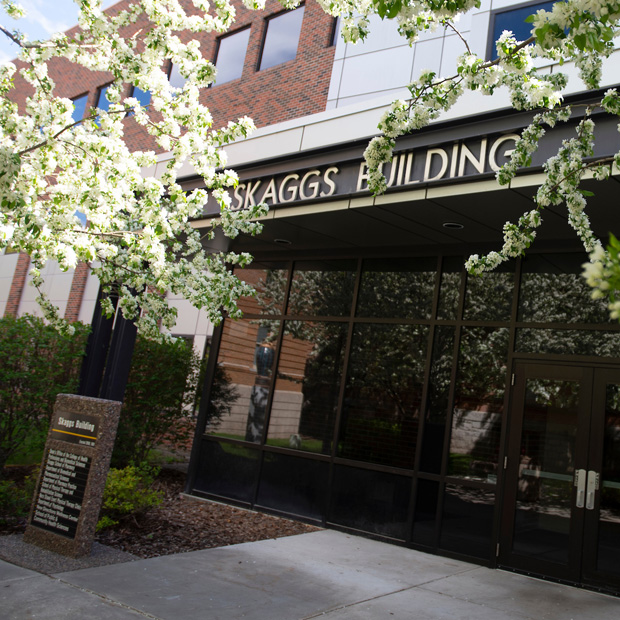Dean Humphrey
Reed Humphrey currently serves as the Dean for College of Health at the University of Montana. Reed also provides university administrative oversight for the Family Medicine Residency of Western Montana, where he is chair of the residency and graduate medical education council of western Montana boards. He is the founding head of and provides continued oversight to UM Health & Medicine, an initiative that promotes the health professions, facilitates interprofessional health education across the campus, and develops external partnerships with health care providers to improve the educational, service and research experiences at UM and in the region. Reed serves on a number of advisory boards on campus and in the community, most notably as chair of the SpectrUM board in the Missoula Public Library and as vice-chair of the Community Board of Providence St. Patrick’s Hospital.
A native of Pennsylvania, Dr. Humphrey received his BS and PhD degrees from the University of Pittsburgh, and graduate degrees from Wake Forest University and Virginia Commonwealth University’s Medical College of Virginia, where he also taught with joint appointments in Physiology and Physical Medicine and a clinical appointment with the Richmond VA heart failure and transplant team from 1992-2002. Reed’s prior tenure appointments included Virginia Tech prior to VCU, and Idaho State prior to joining UM. He joined UM in 2006 as a professor and chair in the School of Physical Therapy & Rehabilitation Science and held that position until 2014, when he assumed the deanship in the College of Health Professions & Biomedical Sciences, now the College of Health. During his tenure as chair, he reengineered the clinics and facilitated a sweeping change in the curriculum to bring a new brand, UMPT, into focus, as a contemporary integrated program which continues to be in the upper tier of programs in the Pacific Northwest. He also conceived in collaboration with colleagues in the College the Neural Injury Center (NIC), dedicated initially to improving the outcomes of students, particularly veterans, who are challenged by the sequalae of head injury, through assessment, counseling, referral and research. With academic realignment in 2019, he combined these efforts with those in Integrative Physiology and Athletic Training, addressing similar issues associated with impact concussion in athletes and others. This consolidation has led to broader efforts across the region with workshops to improve community awareness, family education and intervention strategies for the prevention and recovery from head injury. The NIC is located in McGill Hall. From 2020 to 2022, he stepped in at President Bodnar’s request to serve as acting provost and vice-president for academic affairs. With the recruitment of a new permanent provost in 2022, Reed returned to his deanship in the College of Health.
His experience in chronic disease programs began on a community level at Wake Forest and then on to hospital-based programs starting at William Beaumont Hospital in Michigan. His scholarly contributions are principally in the area of exercise and chronic heart failure, and his work in the exercise physiology and training for patients with ventricular assist devices led to his recognition by the American Association of Cardiovascular and Pulmonary Rehabilitation (AACVPR) with its Award of Excellence in 2007, awarded to a single recipient annually. He is a fellow of the AACVPR and a fellow of the American College of Sports Medicine. His publication record is broadly focused on exercise and chronic disease and he has co-edited two texts in exercise testing and training. A former competitive distance runner and triathlete, he has transitioned successfully to a non-competitive active lifestyle out the back door in the Rattlesnake with his wife Kim, son Eliot, and their beloved hound/aussie mix, Sparky. His older son, Reed, is a graduate of the Price School of Public Policy at USC where he served as a policy analyst focusing on immigration issues and social justice, before embarking on his PhD at the Evans School of Policy and Governance at the University of Washington, where he presently studies wildland fire policy.
